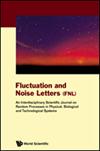基于随机电报噪声的全集成系统真随机数发生器
IF 0.9
4区 工程技术
Q3 MATHEMATICS, INTERDISCIPLINARY APPLICATIONS
引用次数: 0
摘要
生成真实随机数流是许多嵌入式系统的关键组成部分。设计完全集成、面积和功率高效的真随机数生成器是一项挑战。我们提出了一种完全集成的、轻量级的实现,它使用标准MOSFET的随机电报噪声(RTN)作为熵源。它不是模拟密集型的,并且在没有传统后处理算法的情况下,生成的随机比特序列通过了美国国家标准与技术研究所(NIST)的测试。本文章由计算机程序翻译,如有差异,请以英文原文为准。
Random Telegraph Noise based True Random Number Generator for Fully Integrated Systems
Generating streams of true random numbers is a critical component of many embedded systems. The design of fully integrated, area and power efficient True Random Number Generators is a challenge. We propose a fully integrated, lightweight implementation, that uses the random telegraph noise (RTN) of standard MOSFET as entropy source. It is not analog-intensive, and without traditional post-processing algorithms, the generated random bit sequence passes the National Institute of Standards and Technology (NIST) tests.
求助全文
通过发布文献求助,成功后即可免费获取论文全文。
去求助
来源期刊

Fluctuation and Noise Letters
工程技术-数学跨学科应用
CiteScore
2.90
自引率
22.20%
发文量
43
审稿时长
>12 weeks
期刊介绍:
Fluctuation and Noise Letters (FNL) is unique. It is the only specialist journal for fluctuations and noise, and it covers that topic throughout the whole of science in a completely interdisciplinary way. High standards of refereeing and editorial judgment are guaranteed by the selection of Editors from among the leading scientists of the field.
FNL places equal emphasis on both fundamental and applied science and the name "Letters" is to indicate speed of publication, rather than a limitation on the lengths of papers. The journal uses on-line submission and provides for immediate on-line publication of accepted papers.
FNL is interested in interdisciplinary articles on random fluctuations, quite generally. For example: noise enhanced phenomena including stochastic resonance; 1/f noise; shot noise; fluctuation-dissipation; cardiovascular dynamics; ion channels; single molecules; neural systems; quantum fluctuations; quantum computation; classical and quantum information; statistical physics; degradation and aging phenomena; percolation systems; fluctuations in social systems; traffic; the stock market; environment and climate; etc.
 求助内容:
求助内容: 应助结果提醒方式:
应助结果提醒方式:


